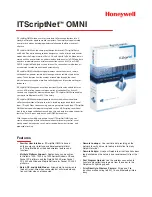
# gfs_tool settune /gfs quota_account 1
# gfs_quota init -f /gfs
6. Growing a File System
The
gfs_grow
command is used to expand a GFS file system after the device where the file
system resides has been expanded. Running a
gfs_grow
command on an existing GFS file
system fills all spare space between the current end of the file system and the end of the device
with a newly initialized GFS file system extension. When the fill operation is completed, the
resource index for the file system is updated. All nodes in the cluster can then use the extra
storage space that has been added.
The
gfs_grow
command must be run on a mounted file system, but only needs to be run on
one node in a cluster. All the other nodes sense that the expansion has occurred and
automatically start using the new space.
To verify that the changes were successful, use the
gfs_grow
command with the
-T
(test) and
-v
(verbose) flags. Running the command with those flags displays the current state of the
mounted GFS file system.
Usage
gfs_grow MountPoint
MountPoint
Specifies the GFS file system to which the actions apply.
Comments
Before running the
gfs_grow
command:
• Back up important data on the file system.
• Display the volume that is used by the file system to be expanded by running a
df
MountPoint
command.
• Expand the underlying cluster volume with LVM. For information on administering LVM
volumes, see the LVM Administrator's Guide
The
gfs_grow
command provides a
-T
(test) option that allows you to see the results of
executing the command without actually expanding the file system. Using this command with
the
-v
provides additional information.
Growing a File System
25
Summary of Contents for GLOBAL FILE SYSTEM 5.2
Page 4: ...Global File System...
Page 6: ...vi...
















































